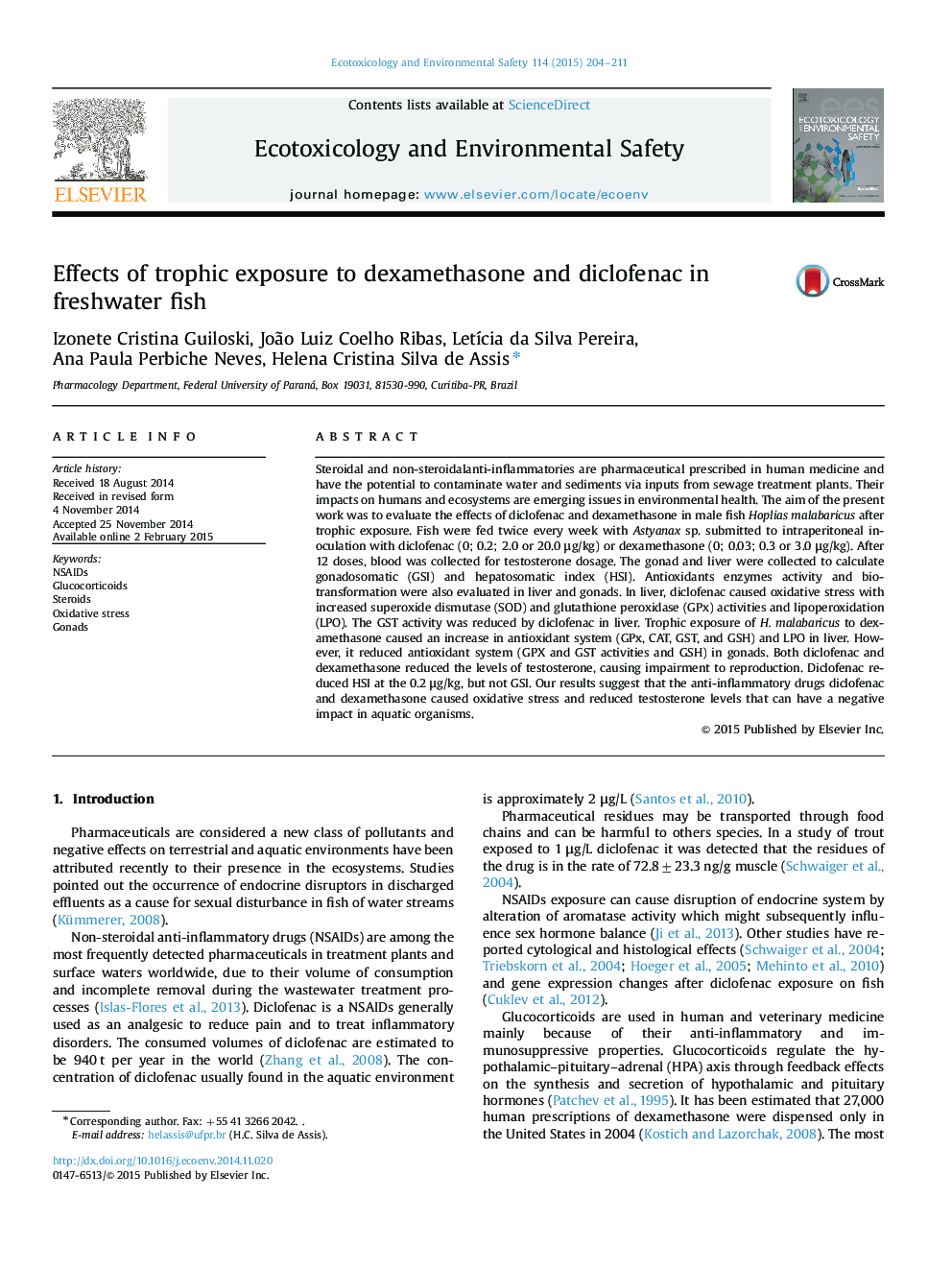| کد مقاله | کد نشریه | سال انتشار | مقاله انگلیسی | نسخه تمام متن |
|---|---|---|---|---|
| 4419819 | 1618949 | 2015 | 8 صفحه PDF | دانلود رایگان |
• Fish trophic exposure to diclofenac and dexamethasone.
• Diclofenac and dexamethasone reduced the levels of testosterone in male fish of Hoplias malabaricus.
• Diclofenac and dexamethasone caused liver oxidative stress to Hoplias malabaricus.
• Dexamethasone also reduced antioxidant system in gonads.
• Anti-inflammatories diclofenac and dexamethasone may have negative impacts in aquatic organisms.
Steroidal and non-steroidalanti-inflammatories are pharmaceutical prescribed in human medicine and have the potential to contaminate water and sediments via inputs from sewage treatment plants. Their impacts on humans and ecosystems are emerging issues in environmental health. The aim of the present work was to evaluate the effects of diclofenac and dexamethasone in male fish Hoplias malabaricus after trophic exposure. Fish were fed twice every week with Astyanax sp. submitted to intraperitoneal inoculation with diclofenac (0; 0.2; 2.0 or 20.0 μg/kg) or dexamethasone (0; 0.03; 0.3 or 3.0 μg/kg). After 12 doses, blood was collected for testosterone dosage. The gonad and liver were collected to calculate gonadosomatic (GSI) and hepatosomatic index (HSI). Antioxidants enzymes activity and biotransformation were also evaluated in liver and gonads. In liver, diclofenac caused oxidative stress with increased superoxide dismutase (SOD) and glutathione peroxidase (GPx) activities and lipoperoxidation (LPO). The GST activity was reduced by diclofenac in liver. Trophic exposure of H. malabaricus to dexamethasone caused an increase in antioxidant system (GPx, CAT, GST, and GSH) and LPO in liver. However, it reduced antioxidant system (GPX and GST activities and GSH) in gonads. Both diclofenac and dexamethasone reduced the levels of testosterone, causing impairment to reproduction. Diclofenac reduced HSI at the 0.2 μg/kg, but not GSI. Our results suggest that the anti-inflammatory drugs diclofenac and dexamethasone caused oxidative stress and reduced testosterone levels that can have a negative impact in aquatic organisms.
Journal: Ecotoxicology and Environmental Safety - Volume 114, April 2015, Pages 204–211
